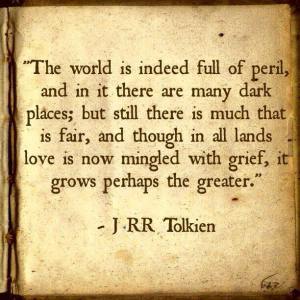Pam Lecky's Blog, page 36
April 22, 2016
A Conversation with Author Miriam Drori
Today in the Library we have Miriam Drori, who has dropped in to say hello and to share some insights into her life as an author.
You are very welcome, Miriam, please introduce yourself:
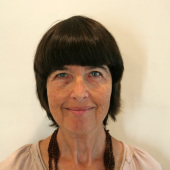 Hello Pam and thank you for hosting me in the Library. I was born and brought up in London, UK and now live in Jerusalem, Israel. We have three grown-up children, two of whom still live at home. In the past, I worked with computers, first as a programmer and later as a technical writer. Now I write more interesting pieces. I also edit novels by other authors and have been lucky enough to have encountered some very talented authors through this work. My hobbies include folk dancing, walking, touring and of course reading.
Hello Pam and thank you for hosting me in the Library. I was born and brought up in London, UK and now live in Jerusalem, Israel. We have three grown-up children, two of whom still live at home. In the past, I worked with computers, first as a programmer and later as a technical writer. Now I write more interesting pieces. I also edit novels by other authors and have been lucky enough to have encountered some very talented authors through this work. My hobbies include folk dancing, walking, touring and of course reading.
Did you read much as a child? Are you an avid reader now? Do you prefer books in your own genre or are you happy to explore others?
I didn’t read much as a child. As a late developer, always the youngest in the class, I was made to read books I wasn’t ready for, and that made me think reading, and hence writing, wasn’t for me. Now I enjoy reading, but I never learned to read quickly. This might be one of the factors that have made me a good editor, as slow reading is required to notice errors, but it also takes me longer to get through a book.
Since joining Crooked Cat Publishing, I have explored new genres. I’ve discovered, for instance, that ancient history can provide a much more interesting backdrop to a novel than I had thought possible.
Are you self-published or traditionally published?
I was fortunate enough to have my novel, Neither Here Nor There, published by Crooked Cat Publishing.
Which genre do you write in and why?
Neither Here Nor There is a romance. The novels I’ve been working on since it was published are not all romances. The last one, which might be the first to see light of day, is historical and follows the fictional life of a real model in a painting.
Who has been the biggest influence on your writing?
That’s so hard to answer. It could be the mentor of my writing group. I joined his group when I was just starting out as a writer, and he taught me a lot. It could be the friend who told me about social anxiety disorder, because the ambition to raise awareness of it was the reason why I began writing. It could be the two friends who encouraged me and helped to polish the novel that was eventually published. It could be people I’ve never met – authors such as Ian McEwan, Naomi Ragen, Khaled Hosseini, Kazuo Ishiguro and many others.
Has your country of origin/culture influenced your writing?
Definitely. Being English, being Jewish – both have had a huge influence on my writing, as has my current country of residence. While I don’t think it’s essential to write what you know, these are the areas where I find I have the most to say.
What part of the writing process do you find most difficult? How do you overcome it?
Possibly writing descriptions. I’m no artist and don’t always look closely enough to see the details, but I’ve been working on doing just that.
Do you have a favourite time of day to write?
I’m more wide awake in the morning, but if I have something important to say, it doesn’t matter what time it is.
What is the best thing about being an author? And the flipside – what is the worst?
Online and offline, I get to meet interesting people who like books, whether other authors or people who love to read. The worst thing has to be that it doesn’t pay well unless you’re famous, which I’m not… yet.
Is social media an essential chore or something you enjoy? Which forum do you prefer?
I enjoy social media. To be honest, I enjoy it particularly because it gives me a chance to chat to people on a level, whereas face to face I’m always at a disadvantage. I suppose I like Facebook the best because of its immediacy and the ease of attracting others who want to chat, but I also like blogging.
If you weren’t an author, what would you be up to?
I would probably still be doing technical writing and looking forward to retirement. I would particularly be hoping for time to make some of the wonderful trips I’ve been on recently.
It’s the last day and the earth is facing oblivion – what book would you read?
Something humorous so that I can die laughing. P.G. Wodehouse would fit the bill.
Please tell us about your latest published work.
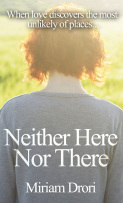 Neither Here Nor There is a romance with a difference. Set mostly in Jerusalem and partly in London, it follows Esty, who has just escaped from the ultra-orthodox community that has been hers up to now. The escape itself takes minutes, her arrival at a new home on the outside, hours. But the process of fitting into that other world is much longer and involves several traumatic scenes. Meeting and falling in love with a young man while all this is going on makes the process easier in some ways and harder in others.
Neither Here Nor There is a romance with a difference. Set mostly in Jerusalem and partly in London, it follows Esty, who has just escaped from the ultra-orthodox community that has been hers up to now. The escape itself takes minutes, her arrival at a new home on the outside, hours. But the process of fitting into that other world is much longer and involves several traumatic scenes. Meeting and falling in love with a young man while all this is going on makes the process easier in some ways and harder in others.
Neither Here Nor There is available from Amazon, Smashwords, Barnes and Noble, Kobo, iTunes and elsewhere.
Miriam Drori can be found on Facebook, Twitter, Goodreads, Pinterest, Wattpad and on her website/blog.


April 16, 2016
A Conversation with Author June Moonbridge
Today in the Library we have June Moonbridge, who has dropped in to say hello and to share some insights into her life as an author.
You are very welcome, June, please introduce yourself:
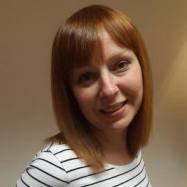 June Moonbridge is my pen name. I come from Slovenia, a little country in the middle of Europe. So I apologise for all the grammar mistakes I’ll definitely make, as English is my second language.
June Moonbridge is my pen name. I come from Slovenia, a little country in the middle of Europe. So I apologise for all the grammar mistakes I’ll definitely make, as English is my second language.
I’m a full time working mother with two children and a husband. My biggest wish is to have a black cat (yes, my daughter still thinks I’m a witch!) and an Irish wolfhound, but I choose not to until I will have enough time for both.
My writing started over two decades ago, when my teacher criticised everything I wrote. Being stubborn, I started to publish short and not so short stories in magazines just to get back honest reviews – and they were encouraging.
I have three books published in my language and one in English, my second novel in English is with my editor and I’m waiting in anticipation for her feed-back.
Did you read much as a child? Are you an avid reader now? Do you prefer books in your own genre or are you happy to explore others?
When it was time for me to learn how to read, I didn’t want to. But when I learned what books can give me, I was able to read 7 books in a week. As years passed so did the number of books.
I like to read different genres and I read almost everything. I usually read every book I take in my hands, but there is one little thing. If it isn’t interesting enough after 20 pages, or if the way the book is written is not something I like, I don’t read it. This doesn’t happen a lot.
Are you self-published or traditionally published?
I’m traditionally published with an independent fiction publisher – Safkhet Publishing.
Which genre do you write in and why?
My novel Racing Heart is listed under Romance > Mystery & Suspense > Suspense. Why? I love a good romance and I love a good Mystery & Suspense, so I combined them.
Who has been the biggest influence on your writing?
I think every single author I have read.
Has your country of origin/culture influenced your writing?
Probably. Living in a small country of a population of only 2m, the way I see the world is probably different.
What part of the writing process do you find most difficult? How do you overcome it?
To write the end. Last two/three scenes I find the most difficult to write. It’s probably because I don’t want my characters to let go. I overcome it when new characters start to be louder in my head than the old ones.
The next writing process is editing. I dread the day when I hear from my editor… I know I’m not perfect and I know she wants to get the best out of me… but working on the edits… (sigh)… but what must be done, must be done…
Do you have a favourite time of day to write?
I write when my family falls asleep. That means I write at night. But I always did, even before I had my family.
What is the best thing about being an author? And the flipside – what is the worst?
The best thing about being an author for me is – learning and meeting new friends.
The worst part – well, it looks like everybody thinks that they have the right to ask you how many books you have sold and how much have you earned. So annoying… my polite answer is: “When you show me your pay-check, I’ll show you mine.”
Is social media an essential chore or something you enjoy? Which forum do you prefer?
In this digital world social media is an essential chore. I do enjoy it but it’s time consuming. Being a full time working mother, I’m not as present as I wish to be, but I’m trying my best.
If you weren’t an author, what would you be up to?
Being an author is (for the time being) only part of what I do. As I said, I’m full time working mother and I work as a Senior Buyer for a steel slewing rings production company. It’s interesting work, but I’m more skilled when it comes to buying steel than a lipstick.
It’s the last day and the earth is facing oblivion – what book would you read?
Oh gosh… Hmmm… I don’t know… I have so many books and e-books, I would probably choose one from my TBR list… but which… I really haven’t got a clue.
Please tell us about your latest published work.
My debut novel Racing Heart was published in July 2015, by Safkhet Publishing.
Race your heart around the bend with Racing Heart! At twenty-five, Desire Hart has experienced almost too much. Changing everything in her life – her identity, her hometown and her country of residence, Desire is determined that nothing will prevent her achieving from finding her missing son. Not even love.
At twenty-five, Desire Hart has experienced almost too much. Changing everything in her life – her identity, her hometown and her country of residence, Desire is determined that nothing will prevent her achieving from finding her missing son. Not even love.
One spring evening, she meets the golden boy of F1 racing, Lorcan Shore, and finds herself falling for him. Struggling to suppress her feelings, she realises he could help her get closer to the child she believes is her long lost son.
But nothing goes according to plan. Her identity is revealed by the press, Lorcan has a terrifying accident, and the trail to her son finishes in another dead end. So Desire does what she does best – she runs away.
Set against the glamorous backdrops of Monaco, Paris and Nice, Racing Heart mixes romance and mystery as Desire struggles to come to terms with her past. Will she learn to accept love into her life again?
If you would like to know more about June, please click on the links below:


April 11, 2016
Celebrating Irish Women Authors: Katharine Tynan Hickson
This blog post is dedicated to Marcella & Keith Flanagan, Katharine’s relatives and my life-long friends
***
It was a song I learnt in school and one, I’m sure, most of you know. All in the April Evening has a beautiful melody and the words touched something in my childish heart, something most of the songs that were inflicted on us at the time most certainly didn’t do. It was only many years later that I discovered that the writer of the poem that forms the lyrics of the song, was Katharine Tynan, and that she was related to my next door neighbour and life-long friend!
So who was she?
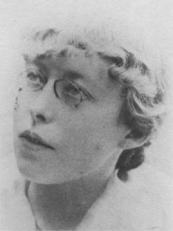 Katharine was born in Clondalkin, Dublin, on 23rd January, 1859. She was one of twelve children and grow up on her father’s dairy farm. From age 6 to 14, she attended the Dominican Convent of St Catherine of Siena, Drogheda, and even considered life in a religious order.
Katharine was born in Clondalkin, Dublin, on 23rd January, 1859. She was one of twelve children and grow up on her father’s dairy farm. From age 6 to 14, she attended the Dominican Convent of St Catherine of Siena, Drogheda, and even considered life in a religious order.
In 1878, The Graphic, which was a British weekly illustrated newspaper, published her first poem. The influence of The Graphic within the art world was immense and she went on to contribute poems to Irish Monthly, Hibernia and Dublin University Review from 1880 to 1885.
Then in 1885, she met W.B. Yeats through the C. H. Oldham’s Dublin Universit y Review. They became life-long friends and greatly influenced each other’s work. He advised her to instill her Irish Catholicism in her work. Her first book, Louise de la Valliere and Other Poems, was heavily influenced by Christina Rossetti and called by Yeats ‘too full of English influence to be quite Irish’. Her second volume, Shamrocks, contained exclusively Irish subject-matter. Her suggestion to Yeats that he should try an Irish subject resulted in Wanderings of Oisin.
y Review. They became life-long friends and greatly influenced each other’s work. He advised her to instill her Irish Catholicism in her work. Her first book, Louise de la Valliere and Other Poems, was heavily influenced by Christina Rossetti and called by Yeats ‘too full of English influence to be quite Irish’. Her second volume, Shamrocks, contained exclusively Irish subject-matter. Her suggestion to Yeats that he should try an Irish subject resulted in Wanderings of Oisin.
In 1893 Katharine married Henry Albert Hinkson, a novelist and 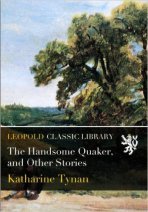 barrister, and a mutual friend of Yeats. The couple moved to London but when he became a Mayo magistrate in 1914, they moved back to Ireland to live in Claremorris. They had 3 children, one of whom became a writer as well – Pamela Hinkson (1900–1982). Henry died in 1919. Katharine died on 2 April 1931 in Wimbledon, London, aged 72.
barrister, and a mutual friend of Yeats. The couple moved to London but when he became a Mayo magistrate in 1914, they moved back to Ireland to live in Claremorris. They had 3 children, one of whom became a writer as well – Pamela Hinkson (1900–1982). Henry died in 1919. Katharine died on 2 April 1931 in Wimbledon, London, aged 72.
During her lifetime, she wrote 100 novels, 12 collections of short stories, 3 plays, and anthologies, as well as innumerable articles on social questions such as poor children and women’s working conditions.
Jack B. Yeats painted her portrait in oil and this picture hangs in the Municipal Gallery, Dublin.
“The Wind that Shakes the Barley” is a well known song encompassing her poem as lyrics.
A prolific writer and unfortunately now almost forgotten. I will leave you with the poem/lyrics of the song that, more than anything else, engendered my love of poetry.
Sheep And Lambs
by Katharine Tynan
All in the April morning,
April airs were abroad;
The sheep with their little lambs
Pass’d me by on the road.
The sheep with their little lambs
Pass’d me by on the road;
All in an April evening
I thought on the Lamb of God.
The lambs were weary, and crying
With a weak human cry,
I thought on the Lamb of God
Going meekly to die.
Up in the blue, blue mountains
Dewy pastures are sweet:
Rest for the little bodies,
Rest for the little feet.
But for the Lamb of God
Up on the hill-top green,
Only a cross of shame
Two stark crosses between.
All in the April evening,
April airs were abroad;
I saw the sheep with their lambs,
And thought on the Lamb of God.
Katharine’s rather impressive catalogue of work includes:
Louise de la Vallière (1885) poems
Shamrocks (1887)
Ballads & Lyrics (1891)
Irish Love-Songs (1892)
A Cluster of Nuts, Being Sketches Among My Own People (1894)
Cuckoo Songs (1894)
Miracle Plays 1895)
The Land of Mist and Mountain (1895)
The Way of a Maid (1895)
Three Fair Maids, or the Burkes of Derrymore(c.1895) later Illustrated by G. Demain Hammond
An Isle in the Water (1896)
The Golden Lily (1899)
The Dear Irish Girl (1899)
Oh, What a plague is Love! (1900)
Her Father’s Daughter (1900)
Poems (1901)
A Daughter of the Fields (1901)
A King’s Woman (1902)
Love of Sisters (1902)
The Great Captain: A Story of the Days of Sir Walter Raleigh (1902)
The Handsome Quaker, and other Stories (1902)
The Adventures of Carlo(1903) illustrated by E. A. Cubitt
The Luck of the Fairfaxes (1904)
A Daughter of Kings (1905)
Innocencies (1905) poems
For the White Rose (1905)
A Little Book for Mary Gill’s Friends (1905)
The Story of Bawn (1906)
The Yellow Domino (1906)
Book of Memory (1906)
Dick Pentreath (1906)
The Cabinet of Irish Literature. (4 volumes) (1906) editor, expansion of work by Charles Read
The Rhymed Life of St Patrick (1907) Illustrated by Lyndsay Symington
Twenty-One poems, selected by B. Yeats (Dun Emer Press, 1907)
A Little Book of XXIV Carols (1907)
Father Mathew(1908) biography of Theobald Mathew
Experiences (1908)
A Union of Hearts (1908)
The House of the Crickets (1908)
Ireland 1909)
A Little Book for John O’Mahony’s Friends (1909)
The Book of Flowers(1909) with Frances Maitland
Mary Gray (1909)
A Girl of Galway
The Rich Man
A Red, Red Rose (c.1910)
Heart O’ Gold or the Little Princess
The Story of Cecelia (1911)
New Poems (1911)
Princess Katharine(1911)
Twenty-five Years: Reminiscences (1913)
Irish Poems (1913)
The Wild Harp (1913) poetry anthology, editor, illustrated by C. M. Watts
A Mesalliance (1913)
The Daughter of the Manor (1914) illustrated by John Campbell
A Shameful Inheritance (1914)
The Flower of Peace (1914) poems
Mary Beaudesert, V. S. (1915)
Flower of Youth(1915) poems
The Curse of Castle Eagle (1915)
The House of the Foxes (1915) novel
Joining the colours (1916)
Lord Edward: A Study in Romance (1916)
The Holy War (Great War Poems) 1916.
The Middle Years (1916)
Margery Dawe (1916) illustrated by Frank E. Wiles
Late Songs (1917)
Herb O’Grace (1918) poems
The sad years (1918) tribute to Dora Sigerson
The Years of the Shadow (1919)
The Honourable Molly (1919)
Denys the Dreamer (1920)
The Handsome Brandons (1921) Illustrated by G. D. Hammond
Bitha’s Wonderful Year (1922)
The Wandering Years (1922)
Evensong (1922)
White Ladies (1922)
A Mad Marriage (1922) novel
Memories (1924)
Life in the Occupied Area (1925)
The Man from Australia (1925)
The Wild Adventure (1927)
Twilight Songs (1927)
The Face in the Picture (1927)
Haroun of London (1927)
Pat, the Adventurer (1928)
The Respectable Lady (1928)
The River (1929)
Castle Perilous (1929)
The Squire’s Sweetheart (1930)
Denise the Daughter (1930)
Collected Poems (1930)
The Admirable Simmons (1930)
The Forbidden Way (1931)
Philippa’s Lover (1931)
A Lonely Maid (1931)
The Story of Our Lord (1932)
The Other Man (1932)
An International Marriage (1933)
Londonderry Air (1935)
The Briar Bush Maid
A little radiant girl, illustrated by John Campbell
A Passionate Pilgrim
Maxims
The Poems of Katharine Tynan (1963) edited by Monk Gibbon
A Girls Song


April 8, 2016
A Conversation with Maggie Cammiss
This evening in the Library we have Maggie Cammiss, who has dropped in to say hello and to share some insights into her life as an author.
You are very welcome, Maggie, please introduce yourself:
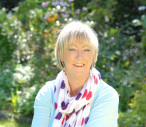 It’s taken a while but I think I’ve arrived. This summer I put ‘novelist’ in the ‘profession’ column of my brand new marriage certificate. I worked in 24-hour rolling news for a long time which gave me a lot of inspiration for my writing. When I left I decided to jump straight in with a novel based on that environment.
It’s taken a while but I think I’ve arrived. This summer I put ‘novelist’ in the ‘profession’ column of my brand new marriage certificate. I worked in 24-hour rolling news for a long time which gave me a lot of inspiration for my writing. When I left I decided to jump straight in with a novel based on that environment.
Did you read much as a child? Are you an avid reader now? Do you prefer books in your own genre or are you happy to explore others?
My mum took me to the public library as soon as I could read and I’ve been a keen reader ever since. My first real job was in public libraries and it introduced me to lots of genres I wouldn’t have otherwise read: biographies, poetry, social history; true crime. I still read widely: historical and literary fiction; romance; lots of crime – from the UK and America – as well as the recent Scandinavia offerings.
Are you self-published or traditionally published?
I didn’t have an agent, so I submitted my first novel directly to Accent Press. I was absolutely delighted when it was published in December 2014.
Which genre do you write in and why?
I suppose it would fit into the chic-lit and women’s commercial fiction categories. This is where I’m most comfortable. It’s a bit of a cliché, but the old advice to write about what you know certainly worked for me.
Who has been the biggest influence on your writing?
No particular author, but the good stuff spurs me on to better things, and the bad helps me think I’m improving all the time.
Has your country of origin/culture influenced your writing?
Only insofar as my novels are set in familiar parts of the UK and feature characters who live in this country.
What part of the writing process do you find most difficult? How do you overcome it?
The editing is definitely the worst part. I’m a member of a writing group and they are very helpful at this stage – pointing out all the bits that don’t work; the plot points that need joining up; the adverbs that need deleting, and generally being very supportive. And giving me cake.
My biggest challenge these days is applying backside to chair and actually getting the writing done. I live in a beautiful part of the country and the temptation to down tools and go for a walk on the beach, whatever the weather, is always there. Self–control has never been my strong point.
Do you have a favourite time of day to write?
I don’t stick to a rigid timetable these days but usually I catch up on social media in the morning, leaving the afternoons for serious writing. And I make an awful lot of notes in the dead of night.
What is the best thing about being an author? And the flipside – what is the worst?
The best bit is being your own boss, being able to decide how to allocate your time, and spending it with an ever-changing cast of interesting characters who are doing your bidding. Well, most of the time! The worst is the isolation. Writing’s a pretty solitary business, and it’s good to get away from the screen and talk to other people. Oh, and those people who tell me they would write a novel if they only had the time….
Is social media an essential chore or something you enjoy? Which forum do you prefer?
I know I need to do the promotion and I’m getting to enjoy it more than I used to, but it is so time consuming! I have to ration myself or I could while away hours. I use Facebook and Twitter, but I prefer Twitter because it’s more immediate and it doesn’t take too long.
If you weren’t an author, what would you be up to?
I’d like to say something dynamic, like concert pianist, or championship golfer, but sadly I haven’t got the talent, or the patience for all the practice, so I’d have to stick to writing, and reading, of course.
It’s the last day and the earth is facing oblivion – what book would you read?
Definitely not something I’ve already read. It would probably be something I’ve been looking forward to and stored on my Kindle.
P
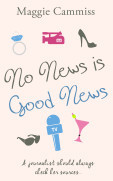 lease tell us about your latest published work.
lease tell us about your latest published work.My first novel ‘No News is Good News’ is published by Accent Press. My second novel is nearing completion.
If you would like to know more about Maggie and her work please see the links below:


April 1, 2016
A Conversation with Patricia Hopper Patteson
I have a special guest in the Library today, fellow Dubliner, Patricia Hopper Patteson, who has dropped in to say hello and to share some insights into her life as an author.
You are very welcome, Patricia, please introduce yourself:
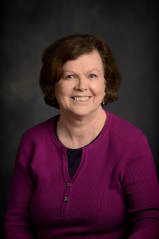 Hello, I’m Patricia Hopper Patteson. I’m a native of Dublin, Ireland, now living in West Virginia. For anyone who is not familiar with West Virginia, it’s south of New York and west of Washington, D.C. John Denver wrote the song “Country Roads” for West Virginia. I came here as a young bride and have lived in Morgantown, home to West Virginia University (WVU), ever since. I hold a B.A. and an M.A. from there. I’ve received numerous awards from the West Virginia Writers’ competition and my fiction and non-fiction have been published in magazines, reviews, and anthologies. When I’m not writing or working, I enjoy spending time with my two grown married children Brian and Tara and my grandson Jackson.
Hello, I’m Patricia Hopper Patteson. I’m a native of Dublin, Ireland, now living in West Virginia. For anyone who is not familiar with West Virginia, it’s south of New York and west of Washington, D.C. John Denver wrote the song “Country Roads” for West Virginia. I came here as a young bride and have lived in Morgantown, home to West Virginia University (WVU), ever since. I hold a B.A. and an M.A. from there. I’ve received numerous awards from the West Virginia Writers’ competition and my fiction and non-fiction have been published in magazines, reviews, and anthologies. When I’m not writing or working, I enjoy spending time with my two grown married children Brian and Tara and my grandson Jackson.
Did you read much as a child? Are you an avid reader now? Do you prefer books in your own genre or are you happy to explore others?
I read a lot as a child. I became absorbed in the books of Enid Blyton and Carolyn Keene. I also liked the classics like Little Women and Ann of Green Gables. When I ran out of books in my age group I began reading adult mystery books. I didn’t read much for years because I was raising a family and working on my degrees, but now I manage to read a bit more. I like most genres except horror and love a good original story.
Are you self-published or traditionally published?
I am traditionally published through Bygone Era Books, which is a small publisher located in Colorado
Which genre do you write in and why?
I am currently writing historical fiction. I am happy I live in the technology age, but I like to imagine what it was like to live during times where people existed without all the modern conveniences and how restrictive the rules of society were in earlier centuries.
Who has been the biggest influence on your writing?
I would have to say my creative writing professors at West Virginia University. It wasn’t until I began taking creative writing classes that I learned the tools to write a novel. Until then I never dreamed of attempting to write a novel. As my interest in creative writing grew, so did my ability to write a novel.
Has your country of origin/culture influenced your writing?
Absolutely. But I’m a person of two countries and two cultures. I blended these in my novel Kilpara. However, sometimes my Irishness creeps into my American characters’ voices and vice versa. My sisters in Ireland are great at pointing this out to me on the Irish side of my writing, and my American author friends do the same for the American side of my novel.
What part of the writing process do you find most difficult? How do you overcome it?
Probably letting go after the final edit. After finishing the first draft of the novel there is a tremendous sense of satisfaction. But then comes the part where the story must be moulded into the finished product and that means adding and cutting information from scenes. It takes several editorial passes to get that right and then comes the polishing. Accepting that the novel is as close to perfect as I can get it is the tough part.
Do you have a favourite time of day to write?
I am most productive in the morning, but it isn’t always possible to work then. So I write when I can.
What is the best thing about being an author? And the flipside – what is the worst?
I enjoy being out among the public, hearing people’s stories and talking to them about what they like to read. I also enjoy those times when the words just flow and a story takes on a life of its own. The worst part of being an author for me is when a story that I thought had so much potential gets bogged down and doesn’t pan out the way I imagined it.
Is social media an essential chore or something you enjoy? Which forum do you prefer?
Social media helps an author interact with other authors and readers in a way that wasn’t possible even ten years ago. So I like being able to have that immediate connection. The flip side is if I get caught up in social media, it can eat away at my time. I most often use Facebook, Twitter and Goodreads.
If you weren’t an author, what would you be up to?
Probably what I do now, which is grant management. WVU is a land grant institution and faculties are required to do research to become tenured. The office I work in assists professors throughout the University to process their research proposals. The work I do requires focus, patience and perseverance. Some of the same skills sets that are required to be a writer.
It’s the last day and the earth is facing oblivion – what book would you read?
A prayer book for comforting words to face the end.
Please tell us about your latest published work.
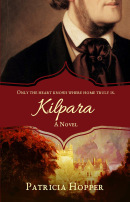 My novel Kilpara was published by Bygone Era Book in May 2015. It is an historical novel set in 1866 soon after the American Civil War. It is the first book in a 3 book family saga series about the O’Donovan family. In Kilpara, Ellis O’Donovan and his family have made it through the darkest days of the Civil War, but not unscathed. With the country healing in the aftermath of the war, opportunities abound for someone of Ellis’ business initiative. His future looks bright—until he receives an urgent telegram that his mother is seriously ill. His life takes a different turn when Ann O’Donovan, an Irish immigrant, pleads with him to take her to see Kilpara and her Irish homeland one last time. However, the estate has passed into the hands of a British aristocrat who will never allow an O’Donovan on his property. Ellis’ future begins to slip away as family responsibility pulls him into its grip.
My novel Kilpara was published by Bygone Era Book in May 2015. It is an historical novel set in 1866 soon after the American Civil War. It is the first book in a 3 book family saga series about the O’Donovan family. In Kilpara, Ellis O’Donovan and his family have made it through the darkest days of the Civil War, but not unscathed. With the country healing in the aftermath of the war, opportunities abound for someone of Ellis’ business initiative. His future looks bright—until he receives an urgent telegram that his mother is seriously ill. His life takes a different turn when Ann O’Donovan, an Irish immigrant, pleads with him to take her to see Kilpara and her Irish homeland one last time. However, the estate has passed into the hands of a British aristocrat who will never allow an O’Donovan on his property. Ellis’ future begins to slip away as family responsibility pulls him into its grip.
Kilpara can be found at:
It is available by order through Barnes and Noble bookstores, Bradley’s Books, and any independent book store
If you would like to know more about Patricia and her work please click on the links below:


March 29, 2016
Ludwika reaches over 150 reviews
Thanks to all the kind-hearted readers who took the time to leave a review for Ludwika. Since writing this blog post yesterday another nine new reviews came in. I’m thrilled to bits.
Reviews are so important on Amazon to be visible; they are also great feedback for the author and guidance for other readers. I appreciate all of them!
5.0 out of 5 stars A MUST READ
B yJoJo on March 28, 2016
Format: Kindle Edition Verified Purchase
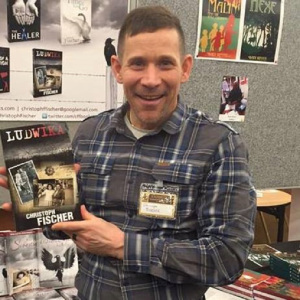
This book just gets better with every page. Just when you think you have figured out the next plot, you turn the page and find out that you are wrong.
4.0 out of 5 stars Takes one into the times that we need to remember …
By jimbo on March 28, 2016
Format: Kindle Edition Verified Purchase
Takes one into the times that we need…
View original post 731 more words


March 26, 2016
A Conversation with Author Francis H Powell
This evening in the Library we have Francis H Powell, who has dropped in to say hello and to share some insights into his life as an author.
You are very welcome, Francis, please introduce yourself:
Born in a commuter belt city called Reading, (England) like many a middle or upper 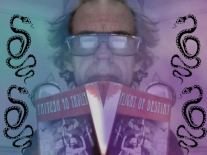 class child of such times, I was shunted off to an all-male boarding school aged eight, away from my parents for up to twelve weeks at a time, until I was 17. While at my first Art college, I met a writer called Rupert Thomson, who was in the process of writing his first book, Dreams of Leaving. His personality and wit resonated, although I have long lost contact with him. Later I lived in Austria, and in 1999 I moved to Paris. During my time in Paris I met Alan Clark, who had a literary magazine called Rat Mort (dead rat). I began contributing and got hooked on writing short stories. My book, Flight of Destiny, is a result of this obsession. I also write poetry.
class child of such times, I was shunted off to an all-male boarding school aged eight, away from my parents for up to twelve weeks at a time, until I was 17. While at my first Art college, I met a writer called Rupert Thomson, who was in the process of writing his first book, Dreams of Leaving. His personality and wit resonated, although I have long lost contact with him. Later I lived in Austria, and in 1999 I moved to Paris. During my time in Paris I met Alan Clark, who had a literary magazine called Rat Mort (dead rat). I began contributing and got hooked on writing short stories. My book, Flight of Destiny, is a result of this obsession. I also write poetry.
Did you read much as a child? Are you an avid reader now? Do you prefer books in your own genre or are you happy to explore others?
I would like to read more than I do. I read quite a bit as child, I used to like historical books. I like all kinds of books, including non-fiction. If a book really grabs me then I will read it intently.
Are you self-published or traditionally published?
I am traditionally published.
Which genre do you write in and why?
First and foremost I write short stories. They have been described as being Dystopian. They are dark, but there is an element of wit in them. I fell into this style, almost by accident. I really like the format of short stories.
Who has been the biggest influence on your writing?
I read a book as a child by Roald Dahl called, Kiss Kiss; this book has remained with me over time. I liked this book because each story has a dramatic twist at the end.
Has your country of origin/culture influenced your writing?
Yes for sure. I would say my stories are very British in character. There is a lot of social criticism and making fun of the British establishment.
What part of the writing process do you find most difficult? How do you overcome it?
Piecing together stories. I think a lot about my stories, working out which direction they are going, how they are going to end.
Do you have a favourite time of day to write?
Not really. I guess I generally write in the evening, but if an idea pops into my head, I could be on a bus or a train, in which case I reach for my trusty black book and scribble down my ideas.
What is the best thing about being an author? And the flipside – what is the worst?
I just love writing stories, inventing characters, plots in my head. I love using a rich vocabulary. The flipside, selling books, and making a name for oneself.
Is social media an essential chore or something you enjoy? Which forum do you prefer?
I have been using the social media for quite a while. Doing a lot of co-promotion, re-tweeting other people’s tweets. You can’t really tell what impact you are making. It becomes a daily chore …
If you weren’t an author, what would you be up to?
Any other creative activity. I went to art school … I still paint … I have an exhibition on the go at the moment. I also write music. To earn my bread and butter, I teach.
It’s the last day and the earth is facing oblivion – what book would you read?
How to survive an oblivion, perhaps. I think in that situation I am not sure I would be able to focus enough to read a book.
Please tell us about your latest published work.
 My latest published work is called Flight of Destiny. It is a collection of short stories about misfortune. They are characterized by unexpected final twists that come at the end of each tale. They are dark and surreal tales, set around the world, at different time periods. They show a world in which anything can happen. It is hard to determine reality and what is going on in a disturbed mind. People’s conceptions about morality are turned upside down. A good person can be transformed by an unexpected event into a bad person and then back again to their former state. The high and mighty often deliver flawed arguments, those considered wicked make good representations of themselves. Revenge is often a subject explored. I have had a few interesting comments from reviewers. “They’re a little Ray Bradbury, a little Stephen King, but with Powell’s own unique twists.” I hope to start work on the follow up, next year. Flight of Destiny is available on Amazon
My latest published work is called Flight of Destiny. It is a collection of short stories about misfortune. They are characterized by unexpected final twists that come at the end of each tale. They are dark and surreal tales, set around the world, at different time periods. They show a world in which anything can happen. It is hard to determine reality and what is going on in a disturbed mind. People’s conceptions about morality are turned upside down. A good person can be transformed by an unexpected event into a bad person and then back again to their former state. The high and mighty often deliver flawed arguments, those considered wicked make good representations of themselves. Revenge is often a subject explored. I have had a few interesting comments from reviewers. “They’re a little Ray Bradbury, a little Stephen King, but with Powell’s own unique twists.” I hope to start work on the follow up, next year. Flight of Destiny is available on Amazon
If you would like to know more about Francis and his work, click on the links below:


March 25, 2016
Easter 1916
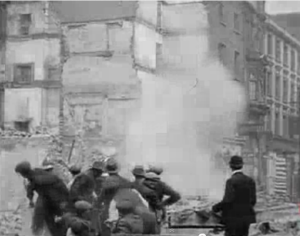 Demolition of 27 North Earl Street
Demolition of 27 North Earl Street“An elderly man stands utterly bewildered. Before him, his business and home are smouldering, black smoke billows from the skeletal remains and an acrid smell pervades the April air. Beside him, his wife and daughters stand, staring in horror. They have lost everything. All that remains of their home is a gable wall with fireplaces hanging grotesquely in mid-air. All is dust. Black and twisted remnants of their lives are the only signs that they had ever lived there. Too traumatised to even cry, they stand, silent and uncomprehending.”
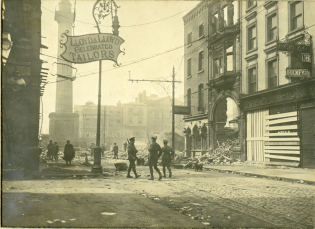 North Earl Street, April 1916
North Earl Street, April 1916The family referred to above is mine, the gentleman my great grandfather. Easter week 1916 claimed his business and home. His once thriving tobacconists at 27 North Earl Street (close to the corner, across from the GPO) and his cigar stall in Westland Row station, were looted and wrecked. When the guns in the grounds of Trinity College were trained on Sackville Street, in an effort to oust the rebels from the GPO, the ensuing inferno destroyed blocks of businesses and homes in the surrounding area.
Afterwards, he tried to salvage his business but his creditors refused to provide new stock, and his insurance did not cover the extent of the damage. His claim for compensation to the British government took months to be processed and when paid was a pittance. Sadly, the insurance claim lists all of their belongings, including most poignantly for me, the wedding trousseau of my great aunt. But they were the lucky ones – they were unharmed. The family left North Earl Street and never returned. My great grandfather died three years later, his wife in 1920.
The centenary of 1916 will be celebrated in Dublin and everywhere around the world where the Irish are gathered this  weekend. There is no question that this was a turning point for a nation. It is sad, however, that it was written in the blood and anguish of so many. Five hundred people lost their lives during the Rebellion, including innocent civilians, unarmed policemen and British soldiers.
weekend. There is no question that this was a turning point for a nation. It is sad, however, that it was written in the blood and anguish of so many. Five hundred people lost their lives during the Rebellion, including innocent civilians, unarmed policemen and British soldiers.
In the frenzy of nostalgic, and sometimes rose-tinted remembrance, it would be nice to spare a thought for those families who were thrown into the darkness of grief and despair, regardless of nationality or political belief. I will leave it to others to eulogise the men of 1916. I’d rather remember the forty families who lost their children during Easter week. I cannot begin to imagine what their pain must have been or that they found any consolation in the fact that their children died as innocent bystanders in the fight for Irish freedom.
It is right to commemorate the birth of an independent nation; I just wish it had not cost the lives of so many. I’ll leave you with the words of Tolkien.
March 19, 2016
A Conversation with Author PJ Connolly
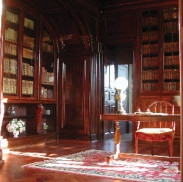
Today in the Library we have PJ Connolly, who has dropped in to say hello and to share some insights into his life as an author.
You are very welcome PJ, please introduce yourself:
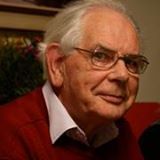 A child of the forties I was born before the outbreak of the Second World War and one of my earliest memories is the drone of German bombers over Dublin and the terror of my parents as they watched the night sky lit with flames. Later I fled the moral dangers of the world, hiding away in monastic silence while I trained for the Catholic priesthood.
A child of the forties I was born before the outbreak of the Second World War and one of my earliest memories is the drone of German bombers over Dublin and the terror of my parents as they watched the night sky lit with flames. Later I fled the moral dangers of the world, hiding away in monastic silence while I trained for the Catholic priesthood.
When I abandoned that dream I settled into a lifetime of counselling, working as careers advisor in a convent school just outside Dublin.
It was only following my early retirement that I took up fiction writing.
Did you read much as a child? Are you an avid reader now? Do you prefer books in your own genre or are you happy to explore others?
Oddly enough I read little or no fiction growing up. I read the books put into my hands by adults attempting to influence my development along strict religious lines. Later in life I preferred books of popular science, history, philosophy, astronomy and so on.
Are you self-published or traditionally published?
Both. My first novel, The Priest’s Wife, was brought out by Wings ePress in the U.S.
With my recent novel, Children of Isaac, I made the decision to bypass the long lead-in periods of the publishing houses. It was important for me to get the book out in time for the 1916 commemoration.
Which genre do you write in and why?
Fiction set in recent times. Children of Isaac, set in the early decades of the twentieth century, could reasonably be described as Historical Fiction.
Who has been the biggest influence on your writing?
James Joyce has been an undoubted influence. I’m an admirer of Margaret Attwood and was influenced to some extent by James Plunkett’s Strumpet City.
Has your country of origin/culture influenced your writing?
Without a doubt. So far I’ve clung to the adage, write about what you know.
What part of the writing process do you find most difficult? How do you overcome it?
Coming up with a plot. My approach is to start writing at random and allow the plot to develop later.
Do you have a favourite time of day to write?
Ideally I would write late at night when my brain is most active. In practice though, the way to get time to yourself, is to get up early when the house is asleep. When I’m immersed in a novel I get up at six am to write.
What is the best thing about being an author? And the flipside – what is the worst?
Best thing is the incredible buzz of sharing with God the power to create and destroy people.
The flipside is that the time spent promoting your books could be spent in making a start on the next one.
Is social media an essential chore or something you enjoy? Which forum do you prefer?
Facebook I enjoy. Twitter I find a bit more impersonal.
If you weren’t an author, what would you be up to?
Growing tomatoes in the greenhouse.
It’s the last day and the earth is facing oblivion – what book would you read?
Teach Yourself to Survive Armageddon.
Please tell us about your latest published work.
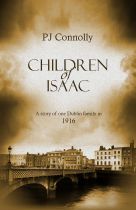 My recently published novel is set against the backdrop of the 1916 Rising, a short-lived attempt to overthrow English rule in Ireland.
My recently published novel is set against the backdrop of the 1916 Rising, a short-lived attempt to overthrow English rule in Ireland.
Set in inner-city Dublin, it reveals the tensions in a marriage torn by religious and political differences as Protestant Isaac and Catholic Annie raise their four children against a background of deceit and subterfuge.
Available for download on Amazon.co.uk or in paperback direct from me (email childrenofisaac@gmx.com) or through the publisher’s website, Choice Publishing.ie
If you want to know more about PJ or his books please click on the links below:


March 10, 2016
A Conversation with Author Eric McFarlane
Today in the Library we have Eric McFarlane who has dropped in to say hello and to share some insights into his life as an author.
You are very welcome, Eric, please introduce yourself:
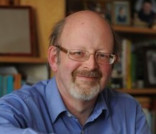 Hello Pam and thanks for the opportunity to take part in your interview series. I trained as a chemist and worked for too many years in the pharmaceutical industry before succumbing to an attack of redundancy. A few other similar jobs followed before I decided to turn a hobby into an opportunity and set up an on-line business selling stamps to philatelists. That’s how I now make a few pennies, not from my writing – at least not yet.
Hello Pam and thanks for the opportunity to take part in your interview series. I trained as a chemist and worked for too many years in the pharmaceutical industry before succumbing to an attack of redundancy. A few other similar jobs followed before I decided to turn a hobby into an opportunity and set up an on-line business selling stamps to philatelists. That’s how I now make a few pennies, not from my writing – at least not yet.
Did you read much as a child? Are you an avid reader now? Do you prefer books in your own genre or are you happy to explore others?
As a child I read everything I could find. I liked adventure, Famous Five, Secret Seven, Just William, Biggles and others in that vain, but much else too including some of the classics. I had an upstairs book for reading in bed and a downstairs book. When a little older I turned to PJ Wodehouse and Science Fiction (Asimov, Clarke and others).
Now I always have a book in hand and feel uncomfortable if there aren’t a few in the queue to follow. My tastes mirror my childhood. Crime/thriller/spy, humour, SF, but also much that wouldn’t fall into these genres. I’ve blogged about my love for the writing of Thomas H Cooke. The only requirement is that there is story. I dislike books that exist to show off the writer’s mastery of the language and most books where the protagonist is a writer – get a life guys! I’ll mention no names.
Are you self-published or traditionally published?
Earlier this year I was thrilled to have my humorous novel, A Clear Solution, published by Accent Press, one of an increasing number of independent publishers. It was a long hard road with many rejections but all the sweeter when it came. I’ve also self-published a collection of humorous short stories, Seline’s World. It was an experiment to see how the process worked. As far as I can see there’s little difference in the effort that the author has to put in for sales and promotion.
Which genre do you write in and why?
I’ve completed thriller, science fiction and several humorous novels. With the publication of A Clear Solution, I’m naturally concentrating on humour now although, if I’m honest, the work I’m best pleased with is the SF novel, Soul Rider, which I hope will find its way out there sometime. As you can see genre mirrors my early reading interests, perhaps not surprisingly.
Who has been the biggest influence on your writing?
For humour it has to be PJ Wodehouse and Tom Sharpe, both such fantastic, quirky writers. There are many other writers I love but for influence on my own writing it has to be those two.
Has your country of origin/culture influenced your writing?
Yes, in the sense that my writing will always be from a UK perspective. I would be uncomfortable writing from the pov of another culture, even a European one, and don’t think I could other than as a visitor or tourist. Having said that this is where SF comes into its own. Make up your own culture.
What part of the writing process do you find most difficult? How do you overcome it?
I guess that would be dealing with the first draft. I’m a seat of the pants writer. I get an idea and let it fly with little or no planning. I’ve no idea when or how the story is going to end. Result – a mess. Getting there was great but moving on is stressful. All the dead ends have to be dealt with and somehow engineer a coherent story. It sounds awful. Why don’t I plan? Well, I have tried but any work which I feel to be any good at all has been produced in this way, whether short story or novel.
Do you have a favourite time of day to write?
No, not really. I’ve written morning, noon and night. But not on the same day.
What is the best thing about being an author? And the flipside – what is the worst?
The best thing, knowing that something you’ve conjured into life and that wouldn’t exist if you didn’t, has been enjoyed by others. The worst is the bits of the writing life that don’t involve writing. Whether that’s searching for an agent/publisher or, these days, social media.
Is social media an essential chore or something you enjoy? Which forum do you prefer?
In general, see previous answer, however, I’m not totally negative about social media. Facebook is a great tool for keeping in touch with relatives and friends you know in person. I’ve also now got to know some fellow writers who I’ve never met in person but would love to if chance arose. Twitter? Like a starling I’m sitting on the fence. It’s both good and bad. I’ve enjoyed #1linewed – post a line from a work in progress. Put up your best oneliners and read lots of great ones. But please, please don’t constantly tweet about your wonderful new book. You will be ignored. Best to interact with people. If somebody likes you they may look for your book.
If you weren’t an author, what would you be up to?
Tricky, but mostly what I’m up to at the moment only more off it. I play fiddle with a small group, offering entertainment locally, collect stamps and postcards, love old books, interested in astronomy – sometime I’ll fulfil my childhood ambition to have a really good telescope, photography, walking … I guess that explains why the days don’t have enough hours.
It’s the last day and the earth is facing oblivion – what book would you read?
This was quite easy. I don’t think I’ve ever re-read a novel before but if it’s your last day, well, you don’t want to be disappointed, I would re-read Thomas H Cooke’s The Fate of Katherine Carr. Probably my favourite novel. An astonishing book both in the quality of the writing and in its conclusion which is really in its beginning. For me it would beat anything on the last Booker shortlist but the author is considered a crime writer so will never appear there.
Please tell us what you are working on at the moment.
Currently working on a humorous, as yet untitled crime novel about a woman with a gap in her memory, a gap that unfortunately covers the time frame of her boss’s murder.
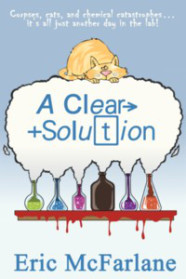 A Clear Solution can be purchased from Accent Press or from Amazon or my Website
A Clear Solution can be purchased from Accent Press or from Amazon or my Website
If you would like to know more about Eric and his work please click on the links:




